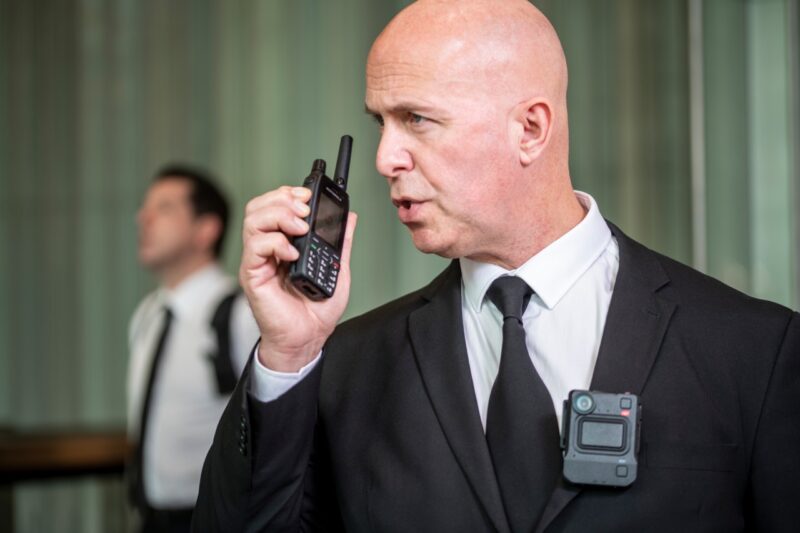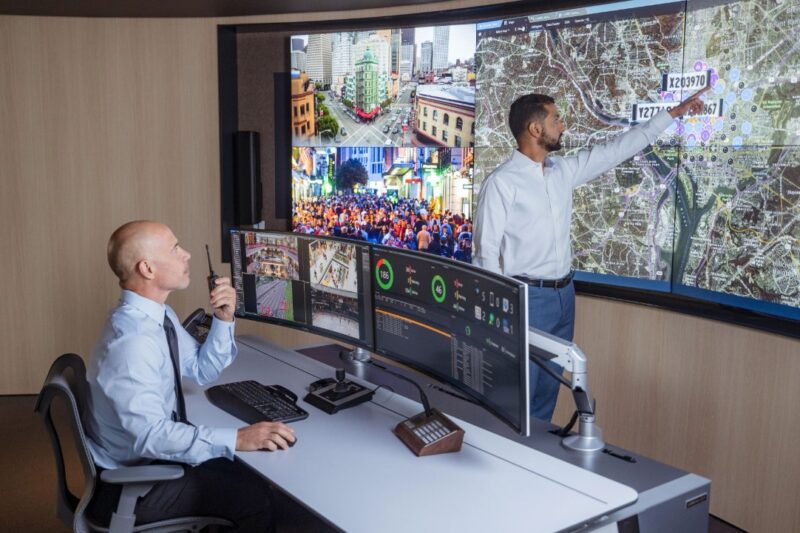Efficient communication keeps a security team sharp. Gaps in communication lead to slow response times, confusion during emergencies, and damaged trust between staff and clients. If you’re a founder, manager, or operational lead in charge of physical security, your team’s communication determines its success or failure.
In this guide, you’ll find concrete ways to improve clarity, trust, and speed of communication in your security operation. No vague suggestions. No corporate filler. Just direct strategies and tools you can use.
Key Highlights
- Miscommunication during a crisis can cost time, money, and reputation.
- Operational language must be standardised across every security role.
- Walkie talkies remain essential for reliable field communication.
- Regular drills are more effective than static team briefings.
- Feedback loops improve clarity and reduce repeated mistakes.
- Non-verbal communication and presence must match verbal direction.
Why Communication Is the Backbone of Security Operations
Security work depends on speed, clarity, and coordinated effort. Your team can’t afford miscommunication during a breach, a fire drill, or a late-night access control issue. When messages are unclear, mistakes stack up quickly.
Inconsistent terminology is one of the most common breakdown points. One guard may say “Zone 3 is clear,” while another reports “Sector C is unsecured.” They may refer to the same place—but who knows for sure? Precision matters.
You must set a shared language for all field and control room activity. If one person uses “code red” while another uses “high alert,” delay is inevitable.
More importantly, there has to be structure in how and when your team communicates. Without discipline, even the best tools become noise.

Equip the Team With the Right Tools and Language
Your team needs tools that support fast, real-time communication. Relying on mobile phones causes delays and increases the risk of distractions. You need hardware built for security demands.
One of the most reliable and cost-effective solutions remains the walkie talkie. Walkie talkies are ideal for quick coordination. They work without mobile networks and don’t require a licence if you use a licence-free model. For on-site operations where guards need to stay in contact across different zones or floors, walkie talkies eliminate lag and reduce misunderstanding.
Keep the following in mind when issuing walkie talkies:
- Match range to operational needs.
- Choose licence-free for internal, smaller-scale setups.
- Pre-program channels to avoid interference.
Besides gear, you must enforce a code of communication. Security calls should use specific, repeatable phrases. Cut out filler words. Replace long descriptions with simple terms. Instead of saying “There’s someone suspicious loitering around near the east parking lot,” train your staff to say, “Suspicious male, East Lot, request backup.”
Use a cheat sheet during training. Post it in the control room. Keep it in every guard booth. Repetition forms discipline.
Daily Briefings Are Not Enough – You Need Active Drills
Briefings get ignored. Let’s be honest. They’re too passive.
If you want better communication, your team must practice. Real-time drills simulate tension and force clear messaging. Staff must learn how to transmit, receive, and respond under pressure. That only happens when you build routine drills into their schedule.

Rotate Roles During Simulations
Let the control room operator switch places with a mobile officer. Let the most experienced team member shadow the newest recruit. This process does two things:
- It boosts mutual respect and understanding.
- It exposes communication blind spots in both roles.
Log Every Drill
Every simulation must include a communication debrief. Ask what worked, what fell apart, and what terms confused people. Make note of who speaks too fast, who fails to confirm receipt, and who hesitates. This helps you coach specific weaknesses.
Build a Culture of Communication, Not Just a Protocol
No protocol survives a team that doesn’t care.
Culture eats procedure. That’s not a cliché—it’s a fact in high-pressure fields like security.
Your team needs to value speaking clearly and listening sharply. If they don’t, no tool or manual will help. That means:
- Senior team members must model precise, respectful communication.
- Mistakes should be corrected immediately, but never with shame.
- Good communication should be recognised openly.
If someone resolves a chaotic situation through precise coordination, call it out in front of the team. If someone breaks protocol or uses sloppy language, correct it quietly but clearly.
Use Visual and Non-Verbal Signals Effectively
Sometimes, radios fail. Noise levels spike. Emergencies overwhelm spoken instructions.
That’s where non-verbal skills come in. You must train your team to use visual signals consistently.
Use These Tactics:
- Hand gestures for “stop,” “go,” “backup,” and “danger”
- Flashlight signals for night operations
- Point-of-contact cues to direct movement without shouting
Teams that train on non-verbal cues respond faster and more discreetly. Use these tools in every drill. Make them second nature.

Leverage After-Action Reviews to Improve Communication Fast
Don’t wait until the end of the month to evaluate how your team communicates. Review events daily or weekly, especially after:
- Incident responses
- Night patrols
- Large events or crowd management tasks
Structure the Review:
- What was said?
- How was it said?
- What caused delays or confusion?
- What should be said next time?
Encourage directness. Your team won’t improve if they only hear praise. Create a review environment where critique feels normal—not personal.
Rotate who leads these sessions. Let every team member develop an eye for clear communication.
Avoid Over-Communication – Learn When to Stay Silent
Over-communication clutters channels. Not every moment needs a report. Train your team to use discretion.
If every guard checks in every five minutes without new info, the signal-to-noise ratio collapses. Teach your team what counts as “signal.”
Use guidelines:
- Report new events, not ongoing status
- Only speak on shared channels when relevant to everyone
- Confirm once—no chatter unless asked
Less talk. More meaning.
Final Thoughts
Your security team doesn’t need louder voices or longer briefings. They need clear structure, the right tools, disciplined habits, and a culture that values precision.
Train like it matters. Because it does. Every emergency tests your team’s clarity. Either they respond with purpose—or they scramble and expose the business to risk.
Build teams that speak with purpose. Equip them. Drill them. Support them. That’s how you win trust—hour by hour, shift by shift.

